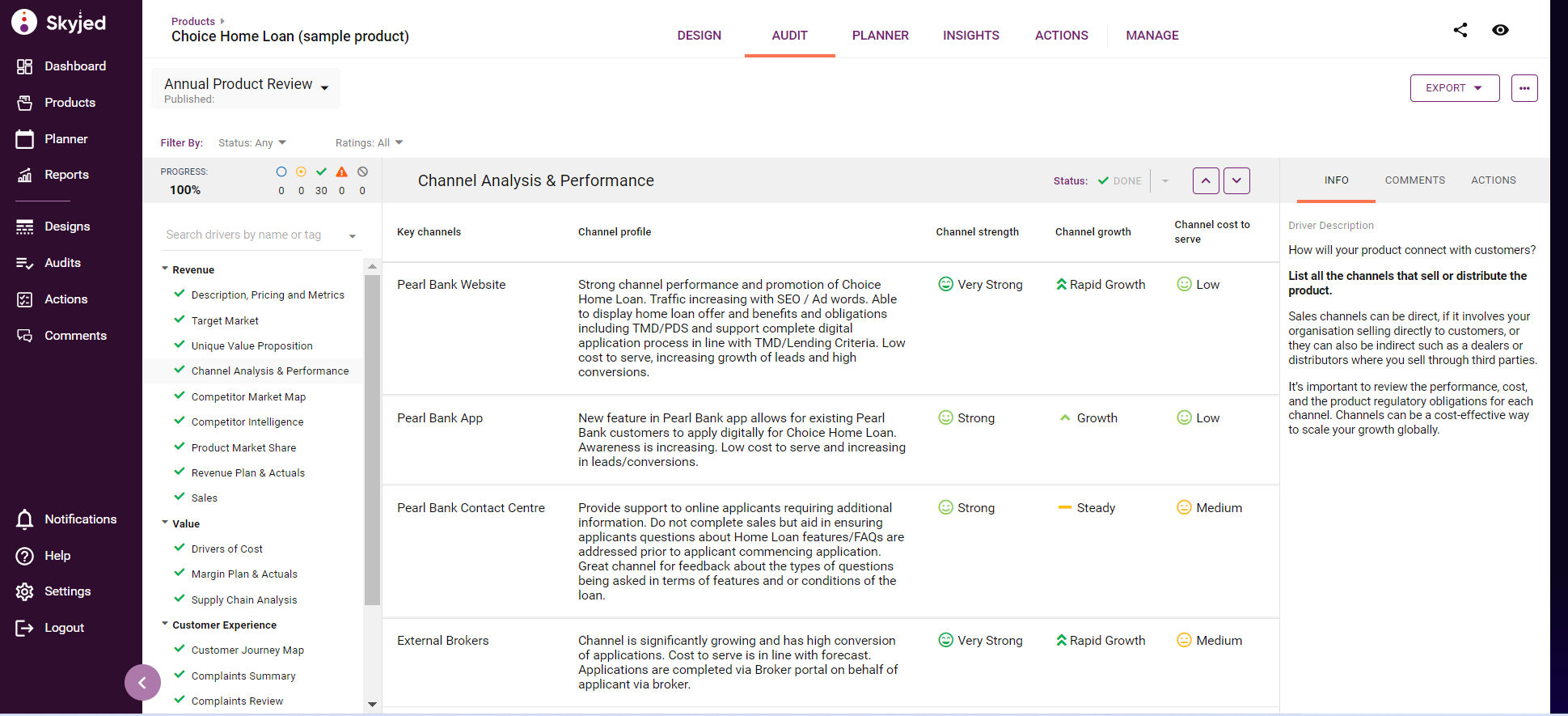Maximising Product Success: The Importance of Lifecycle Monitoring for Busy CPOs
by Leica Ison

As a Chief Product Officer (CPO), you play a crucial role in the success of your company's product strategy. However, with a busy schedule and numerous responsibilities, staying on top of the vital task of lifecycle monitoring and assessment can be challenging.
But what exactly is lifecycle monitoring and assessment, and why are they essential for product success?
Lifecycle monitoring refers to the ongoing process of tracking and analysing key metrics, such as customer satisfaction, product usage, and sales, complaints to gain insights into product performance and identify areas for improvement. This enables you to make data-driven decisions to improve product performance and reach business objectives. The best practice monitoring cadence is monthly with quarterly reviews or assessments.
On the other hand, lifecycle assessment or audit is a systematic evaluation of a product's overall health or impact and performance throughout its entire lifecycle. This includes assessing the product's environmental, social, and governance impacts, as well as its overall performance and market success. The best practice for lifecycle assessment or audits is quarterly with strategic annual review. Also conducting a strategic review when you hit a trigger threshold in your monitoring for example 20 customer complaints per month or trends of 30% increase.
The importance of lifecycle monitoring and assessment cannot be overstated. Without proper monitoring and assessment, you may not identify problems early enough to make necessary changes, leading to missed opportunities and potential product failure. With comprehensive monitoring and assessment, you can gain valuable insights into your product's performance and make informed decisions to drive success.
In this blog, I dive into the compelling reasons why CPOs should implement a new framework and tool for lifecycle monitoring and assessment. This includes:
- Better performance metric monitoring - With a comprehensive lifecycle monitoring framework, you can track key performance metrics in real-time, such as customer satisfaction and complaints, product usage, and sales. This enables you to make data-driven decisions to improve product performance and reach business objectives.
- Consistent reviews - Regular monitoring is crucial to ensuring that your products meet customer needs and market or regulatory demands. Implementing a constant review process, such as monthly and quarterly monitoring, can help you stay on top of trends and changes in the market.
- Better quality reports for management - Comprehensive monitoring and reporting can provide critical insights into product performance and help you communicate effectively with management and other stakeholders. This can help build trust and support for product initiatives, leading to better collaboration and decision-making.
- Data-driven reports for regulatory compliance and risk management - With a robust monitoring framework, you can produce data-driven reports that support your product's compliance with regulatory requirements and risk management standards. This can help you minimise potential risks and ensure that your products meet the necessary standards and regulations. This are can often be time-consuming for product teams and and involve lengthy preparation for governance forums.
- Comprehensive product assessment - With a comprehensive lifecycle assessment, you can understand your product's impact and performance, including its environmental, social, and governance impacts. At Skyjed we enable you to conduct an assessment across financial and non-financial metrics covering the 5 domains of product health - revenue, value, customer experience, regulatory and innovation domains for success.
Skyjed is a platform that can help CPOs overcome the challenges of lifecycle monitoring and assessment. With its easy-to-use interface and guided 6-week onboarding program, Skyjed can be quickly and easily implemented into any organisation's product development process.
Using automated tools like product planner and trigger workflow can help streamline your monitoring and assessment processes, automate reporting, and make data-driven decisions to improve product performance and achieve business objectives.
Skyjed's pre-built Product Review templates guide you to consider and input key areas of product health. For example, the annual product review which is our most comprehensive guides you through 30 information input drivers across 5 domains of product health.
Some examples include:
Revenue – Product description, value proposition, pricing, competitor and channel analysis, product share, revenue, and sales.
Value – drivers of cost, margin analysis and supply chain.
Customer Experience – customer journey assessment, customer complaints, product experience and product pain points.
Innovation - technology trends, innovation, growth and product roadmap, industry dynamics and product SWOT analysis.
Regulatory - product obligations, regulatory trends, target market review and modern slavery review.
Take a peek at an example of a Annual Product Review in Skyjed

When you sign up to Skyjed on any of our tiers, you get access to our best practice Product Design and Audit Templates.
These templates have been created using input from product leaders around the world and are designed to help you meet your specific business goals whilst helping you drive towards product success.
Below is the list of our carefully curated:
Product Design Templates.
- Launch Ready Checklist – assess the launch readiness of your product in early design / test phases.
- Lean Canvas – proven 1 page business plan template that helps deconstruct your product concept into its key assumptions and then export it into the one-page Lean Canvas template or standard word/ PDF format.
- Product Strategy – outline your high-level plan describing the vision and objectives for your product and how to achieve this.
- Target Market Design – versatile template to define your target market, triggers and review cadence.
Product Audit / Review Templates:
- Annual Product Review - This review is an extensive end to end 360° review of your product's performance across all 5 of Skyjed’s domains of product health. It delivers deep insights into where you have opportunities for growth as well as risks to mitigate and is the gold standard in comprehensive in market product reviews.
- Customer Experience Review - Assess the strengths, opportunities, and shortfalls of your product as you put your customer’s experience first.
- Launch Ready Review - Assess the readiness of your product in this all-encompassing launch review process before you go live on your next product or product feature.
- Lite Product Review - This is a high-level 360° review of your product that you can conduct half yearly or with a more regular cadence.
- Product Growth Review - Focus on Product Growth, Revenue and Innovation to drive success for your product objectives.
- Target Market Review - Conduct regular monitoring reviews for consistency and compliance to regulatory obligations
So in summary implementing a comprehensive lifecycle monitoring and assessment framework and a tool like Skyjed can help you stay on top of product performance and make informed decisions to drive success. With its easy implementation and consistent monitoring and assessment processes, Skyjed can help you achieve your goals and take your products to the next level.
Don't let a busy schedule hold you back from maximising your product's success. Implement a comprehensive lifecycle.
.
About Skyjed
Skyjed is product lifecycle and governance platform. Skyjed’s Ai-powered end-to-end product platform bring together every data point across the entire product portfolio into a single source of product truth. Skyjed was founded in 2017 and is headquartered in London and offices in Sydney and Melbourne, Australia. For more information visit Skyjed



